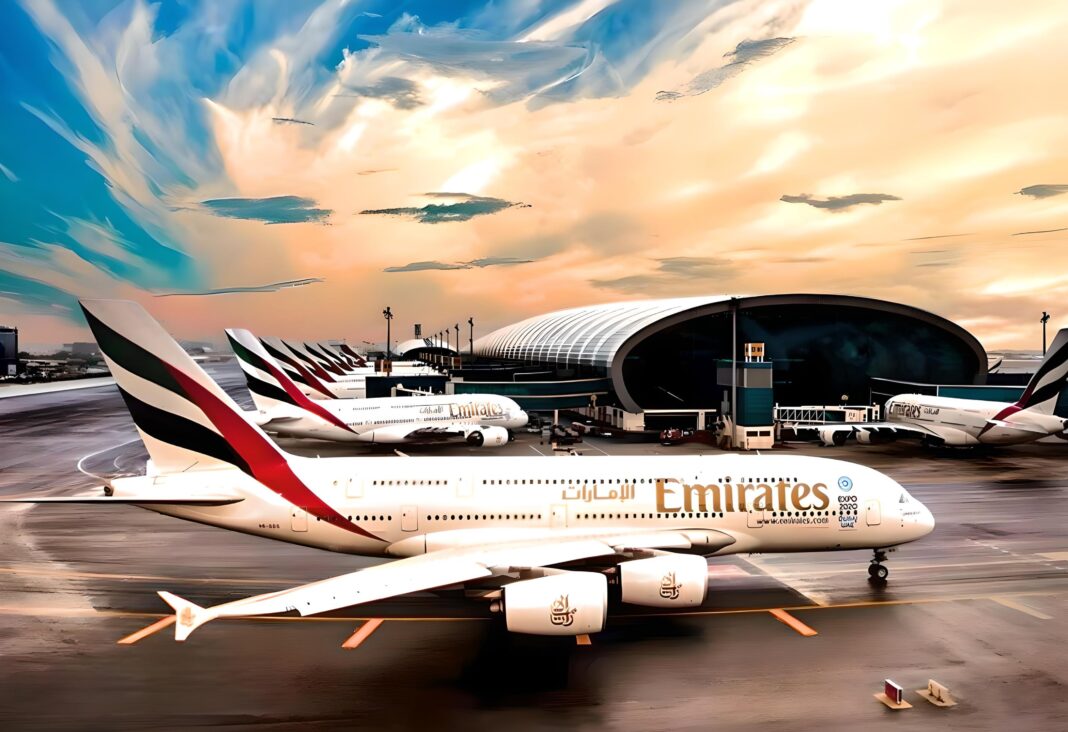Emirates achieved a significant milestone overnight, becoming the first airline to operate an Airbus A380 using Sustainable Aviation Fuels (SAF).
The flight – the first to use a 100% drop in SAF fuels in one of its engines – took off from Dubai last night and resulted from a collaboration between Emirates, Airbus, Engine Alliance, Pratt & Whitney, Virent and … Nestle!
Wood Central understands that the fuel source came from Nestle, which has been turning its food, agricultural, and forest waste into liquid biomass through anaerobic conversion for over a decade.
In recent years, Nestle has become a global power in biofuels with Neste MY Sustainable Aviation Fuel (SAF)™ using NEXBTL™ technology “to produce SAF from almost any waste fat or vegetable oil.”
The shift to produce SAF results from Nestle’s commitment to achieve zero-waste across their global production facilities – delivered in 2020.
According to Nestle, “100% SAF used on the flight also includes renewable aromatic content,” and confirmed that it is the first time that 100% drop-in SAF is used on an A380 aircraft, “with the expectation of full compatibility across the aircraft’s existing systems.”
It reports that “100% SAF made from renewable raw materials powered one Engine Alliance GP200 engine” on the craft, “whilst conventional fossil jet fuel was used in the other engines.”
According to Emirates Chief Operation Officer Adel Al Redha, the push to embrace SAF “is a significant step in adopting 100% SAF flying” and is “part of a growing demand for lower-emission jet fuel emissions to lower carbon emissions.”
As reported by Wood Central in July, the market for SAF is enormous, fuelled by global aviation’s commitment to achieve “net-zero emissions by 2050”, driven by 65 per cent of emission cuts expected to come from using sustainable fuel.
Significantly, SAF is a significant opportunity for global forestry, with the International Energy Agency supporting a shift away from bioenergy produced by food crops to organic waste streams, forest and wood residues, short-rotation woody crops and forestry plantings.
“As well as allowing a much greater level of bioenergy crop production on marginal lands, short-rotation woody crops can produce twice as much bioenergy per hectare as many conventional bioenergy crops,” it said.
“Sustainably managed forest plantations established outside of existing forested land can increase carbon stocks while at the same time sustainably producing biomass.”
In August, Australian Minister for Energy and Climate Change, Chris Bowen, said that SAF could help regional Australia become a “renewable energy superpower.”
Nestle is now looking to grow its supply of SAF into the Middle East and has recently signed a partnership with Emirates to supply 9,000 tons (or 3 million gallons) of blended SAF over the next two years, used on Emirates flights departing from Amsterdam and Singapore airports.
“Sustainable aviation fuel plays a crucial role in reducing air travel emissions, but to fully leverage its decarbonization potential, we need to enable the use of 100% SAF,” according to Jonathan Wood, Vice President of Commercial Management and Business Development from the Renewable Aviation business at Neste.

Beyond SAF, Nestle is also a significant player in reforestation.
Late last year, the Wood Central Publisher reported that Nestle planted more than 200 million trees worldwide – including 10 million in Australia alone as part of Nestle’s broader commitment to greener operations.
In Australia alone, Nestle reports that reforestation efforts will reduce carbon emissions by more than 2.1 million tonnes over 27 years as part of a commitment to reduce Scope 3 emissions across its entire value chain.






